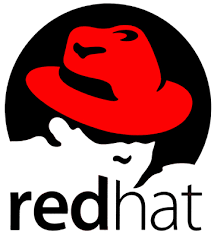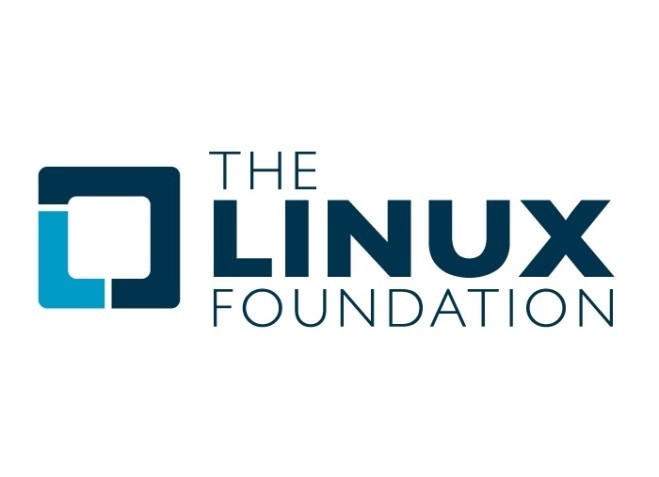Kubernetes
See the following -
Low-cost Aplication Platforms (LCAP): What They Should Mean to Public Health
 Agency budgets continue to run tight, while the demands for data modernization continue to escalate. We are also seeing weakening markets – not strengthening markets – for core public health software systems like Immunization Information Systems (IIS) and Disease Surveillance/case management systems. One of the emerging, promising approaches are Low-cost Application Platforms (LCAP). What exactly are they, where did they come from, and are they a useful strategy for developing core public health applications?
Agency budgets continue to run tight, while the demands for data modernization continue to escalate. We are also seeing weakening markets – not strengthening markets – for core public health software systems like Immunization Information Systems (IIS) and Disease Surveillance/case management systems. One of the emerging, promising approaches are Low-cost Application Platforms (LCAP). What exactly are they, where did they come from, and are they a useful strategy for developing core public health applications?
- Login to post comments
Managing The Open Source Product Roadmap
 Customers, as well as the sales and marketing teams who talk to them, love a roadmap. It gives them a sense of what is realistic and what is not. The roadmap is also at the heart of a product. Maintaining an up-to-date product roadmap keeps the product team focused on the customer and aligned around delivering what they need. The roadmap communicates both the strategic direction for a product and the company's perspective on problem solving.
Customers, as well as the sales and marketing teams who talk to them, love a roadmap. It gives them a sense of what is realistic and what is not. The roadmap is also at the heart of a product. Maintaining an up-to-date product roadmap keeps the product team focused on the customer and aligned around delivering what they need. The roadmap communicates both the strategic direction for a product and the company's perspective on problem solving.
- Login to post comments
Open Invention Network Announces Expansion of its Patent Non-Aggression Coverage
 Open Invention Network (OIN), the largest patent non-aggression community in history, with well over 2000 organization members, announced today that it has expanded its patent non-aggression coverage through an update to its definition of the Linux System. The expansion focuses on core open source system and middleware level packages, including software packages that support the growing use of Linux in industries that include finance (e.g., blockchain), automotive, telecommunications and the internet-of-things (IoT). The expansion is part of Open Invention Network's program to regularly revise its Linux System coverage to keep pace with innovation...
Open Invention Network (OIN), the largest patent non-aggression community in history, with well over 2000 organization members, announced today that it has expanded its patent non-aggression coverage through an update to its definition of the Linux System. The expansion focuses on core open source system and middleware level packages, including software packages that support the growing use of Linux in industries that include finance (e.g., blockchain), automotive, telecommunications and the internet-of-things (IoT). The expansion is part of Open Invention Network's program to regularly revise its Linux System coverage to keep pace with innovation...
- Login to post comments
OpenShift Commons Gathering Event Preview
 We're just two months out from the OpenShift Commons Gathering coming up on November 7, 2016 in Seattle, Washington, co-located with KubeCon and CloudNativeCon. OpenShift Origin is a distribution of Kubernetes optimized for continuous application development and multi-tenant deployment. Origin adds developer and operations-centric tools on top of Kubernetes to enable rapid application development, easy deployment and scaling, and long-term lifecycle maintenance for small and large teams. And we're excited to say, the 1.3 GA release of OpenShift Origin, which includes Kubernetes 1.3, is out the door! Hear more about the release from Lead Architect for OpenShift Origin, Clayton Coleman...
We're just two months out from the OpenShift Commons Gathering coming up on November 7, 2016 in Seattle, Washington, co-located with KubeCon and CloudNativeCon. OpenShift Origin is a distribution of Kubernetes optimized for continuous application development and multi-tenant deployment. Origin adds developer and operations-centric tools on top of Kubernetes to enable rapid application development, easy deployment and scaling, and long-term lifecycle maintenance for small and large teams. And we're excited to say, the 1.3 GA release of OpenShift Origin, which includes Kubernetes 1.3, is out the door! Hear more about the release from Lead Architect for OpenShift Origin, Clayton Coleman...
- Login to post comments
Pandemic Stress Test: The Open Source Cloud Is Up To The Challenge
 We all know that modern business has become a rapid-response environment. Never before have we had the number of IT resources at the tips of our fingers as we have today, and most of them are enabled by the cloud. When we refer to "the cloud", we may be talking about several computing concepts, but typically the cloud consists of a set of remotely-hosted resources and services, from web pages to mobile apps or even traditional desktop applications. The cloud continuously transforms our connectivity on a global scale. It can be found everywhere, from our vehicles to our phones and even to our watches. From what we are witnessing right now, the cloud may ultimately safely carry numerous organizations through a global crisis.
We all know that modern business has become a rapid-response environment. Never before have we had the number of IT resources at the tips of our fingers as we have today, and most of them are enabled by the cloud. When we refer to "the cloud", we may be talking about several computing concepts, but typically the cloud consists of a set of remotely-hosted resources and services, from web pages to mobile apps or even traditional desktop applications. The cloud continuously transforms our connectivity on a global scale. It can be found everywhere, from our vehicles to our phones and even to our watches. From what we are witnessing right now, the cloud may ultimately safely carry numerous organizations through a global crisis.
- Login to post comments
Red Hat Unleashes the Power of Linux Containers with Industry’s Broadest Solution Set
 Red Hat, Inc., the world's leading provider of open source solutions, today announced the availability of the IT industry’s most comprehensive set of enterprise-grade Linux container solutions. Red Hat’s container portfolio spans nearly every application delivery need, from free development tools to a comprehensive container platform that integrates management, Platform-as-a-Service (PaaS) and Containers-as-a-Service (CaaS). Addressing modernization of existing IT investments and innovation alike, Red Hat now enables customers to better leverage the full benefits of containerization with more secure, portable and consistent container-based solutions, supporting key open standards such as the Open Container Initiative (OCI) container format and Kubernetes orchestration...
Red Hat, Inc., the world's leading provider of open source solutions, today announced the availability of the IT industry’s most comprehensive set of enterprise-grade Linux container solutions. Red Hat’s container portfolio spans nearly every application delivery need, from free development tools to a comprehensive container platform that integrates management, Platform-as-a-Service (PaaS) and Containers-as-a-Service (CaaS). Addressing modernization of existing IT investments and innovation alike, Red Hat now enables customers to better leverage the full benefits of containerization with more secure, portable and consistent container-based solutions, supporting key open standards such as the Open Container Initiative (OCI) container format and Kubernetes orchestration...
- Login to post comments
Reflecting On 2014, Looking Ahead To 2015
It is confirmed: 2014 has been a great year for Red Hat. Yesterday, we announced third quarter results of our fiscal year 2015 and, with that, celebrated our 51st consecutive quarter of revenue growth - more than 12 years of consecutive revenue growth...
- Login to post comments
SAHMSA Contributes Open Source Code for Omnibus Care Plan to OSEHRA
 The Open Source Electronic Health Record Alliance (OSEHRA), a nonprofit membership organization dedicated to accelerating innovation through open source strategy, is pleased to welcome a major code contribution from the Department of Health and Human Services (HHS) Substance Abuse and Mental Health Service Agency (SAMHSA). The complete Omnibus Care Plan (OCP) Fast Healthcare Interoperability Resources (FHIR) and SMART on FHIR Infrastructure, including the Care Coordination and Consent Management code package, contributed using the Apache License Version 2.0, has been delivered to OSEHRA and is now available for the healthcare community.
The Open Source Electronic Health Record Alliance (OSEHRA), a nonprofit membership organization dedicated to accelerating innovation through open source strategy, is pleased to welcome a major code contribution from the Department of Health and Human Services (HHS) Substance Abuse and Mental Health Service Agency (SAMHSA). The complete Omnibus Care Plan (OCP) Fast Healthcare Interoperability Resources (FHIR) and SMART on FHIR Infrastructure, including the Care Coordination and Consent Management code package, contributed using the Apache License Version 2.0, has been delivered to OSEHRA and is now available for the healthcare community.
- Login to post comments
The Linux Foundation and edX Announce Free Open Source Cloud Infrastructure Course
 The Linux Foundation, the nonprofit organization enabling mass innovation through open source, today announced its newest massive open online course (MOOC) is available for registration. The course is an Introduction to Cloud Infrastructure Technologies and is offered through edX, the nonprofit online learning platform launched in 2012 by Harvard University and Massachusetts Institute of Technology (MIT). The course is free and will begin this June...
The Linux Foundation, the nonprofit organization enabling mass innovation through open source, today announced its newest massive open online course (MOOC) is available for registration. The course is an Introduction to Cloud Infrastructure Technologies and is offered through edX, the nonprofit online learning platform launched in 2012 by Harvard University and Massachusetts Institute of Technology (MIT). The course is free and will begin this June...
- Login to post comments
Trends in Corporate Open Source Engagement
 In 1998, I was part of SGI when we started moving to open source and open standards, after having been a long-time proprietary company. Since then, other companies also have moved rapidly to working with open source, and the use and adoption of open source technologies has skyrocketed over the past few years. Today company involvement in open source technologies is fairly mature and can be seen in the following trends...
In 1998, I was part of SGI when we started moving to open source and open standards, after having been a long-time proprietary company. Since then, other companies also have moved rapidly to working with open source, and the use and adoption of open source technologies has skyrocketed over the past few years. Today company involvement in open source technologies is fairly mature and can be seen in the following trends...
- Login to post comments
Why Data Scientists Love Kubernetes
 Let's start with an uncontroversial point: Software developers and system operators love Kubernetes as a way to deploy and manage applications in Linux containers. Linux containers provide the foundation for reproducible builds and deployments, but Kubernetes and its ecosystem provide essential features that make containers great for running real applications...What you may not know is that Kubernetes also provides an unbeatable combination of features for working data scientists. The same features that streamline the software development workflow also support a data science workflow! To see why, let's first see what a data scientist's job looks like...
Let's start with an uncontroversial point: Software developers and system operators love Kubernetes as a way to deploy and manage applications in Linux containers. Linux containers provide the foundation for reproducible builds and deployments, but Kubernetes and its ecosystem provide essential features that make containers great for running real applications...What you may not know is that Kubernetes also provides an unbeatable combination of features for working data scientists. The same features that streamline the software development workflow also support a data science workflow! To see why, let's first see what a data scientist's job looks like...
- Login to post comments
Why Linux is Critical to Edge Computing
 Edge computing is a model of infrastructure design that places many "compute nodes" (a fancy word for a server) geographically closer to people who use them most frequently. It can be part of the open hybrid-cloud model, in which a centralized data center exists to do all the heavy lifting but is bolstered by smaller regional servers to perform high frequency-but usually less demanding-tasks. Because Linux is so important to cloud computing, it's an ideal technology to learn if you intend to manage or maintain modern IT systems.
Edge computing is a model of infrastructure design that places many "compute nodes" (a fancy word for a server) geographically closer to people who use them most frequently. It can be part of the open hybrid-cloud model, in which a centralized data center exists to do all the heavy lifting but is bolstered by smaller regional servers to perform high frequency-but usually less demanding-tasks. Because Linux is so important to cloud computing, it's an ideal technology to learn if you intend to manage or maintain modern IT systems.
- Login to post comments
Why the Operating System Matters Even More in 2017
 Operating systems don't quite date back to the beginning of computing, but they go back far enough. Mainframe customers wrote the first ones in the late 1950s, with operating systems that we'd more clearly recognize as such today—including OS/360 from IBM and Unix from Bell Labs—following over the next couple of decades. An operating system performs a wide variety of useful functions in a system, but it's helpful to think of those as falling into three general categories. First, the operating system sits on top of a physical system and talks to the hardware. This insulates application software from many hardware implementation details...
Operating systems don't quite date back to the beginning of computing, but they go back far enough. Mainframe customers wrote the first ones in the late 1950s, with operating systems that we'd more clearly recognize as such today—including OS/360 from IBM and Unix from Bell Labs—following over the next couple of decades. An operating system performs a wide variety of useful functions in a system, but it's helpful to think of those as falling into three general categories. First, the operating system sits on top of a physical system and talks to the hardware. This insulates application software from many hardware implementation details...
- Login to post comments
Open Invention Network Expands Open-Source Patent Protection Beyond Linux
 Today, everyone and their uncle -- yes, even Microsoft-- use Linux and open-source. A decade ago, Linux was under attack by SCO for imaginary copyright violations, and then Microsoft CEO Steve Ballmer was claiming that Linux violated more than 200 of Microsoft's patents. So Open Invention Network (OIN) patent consortium was formed to defend Linux against intellectual property (IP) attacks. The stakes may not be so high today, but Linux and open-source software is still under attack from patent trolls and other attackers...
Today, everyone and their uncle -- yes, even Microsoft-- use Linux and open-source. A decade ago, Linux was under attack by SCO for imaginary copyright violations, and then Microsoft CEO Steve Ballmer was claiming that Linux violated more than 200 of Microsoft's patents. So Open Invention Network (OIN) patent consortium was formed to defend Linux against intellectual property (IP) attacks. The stakes may not be so high today, but Linux and open-source software is still under attack from patent trolls and other attackers...
- Login to post comments
OpenStack Summit
In addition to OpenStack-related sessions, the event features Kata Containers, Ansible, Ceph, Kubernetes, ONAP, and more projects. Featured topics include CI/CD, container infrastructure, edge computing, HPC/GPU/AI, open source community, private and hybrid cloud, public cloud, telecom and NFV.
- Login to post comments